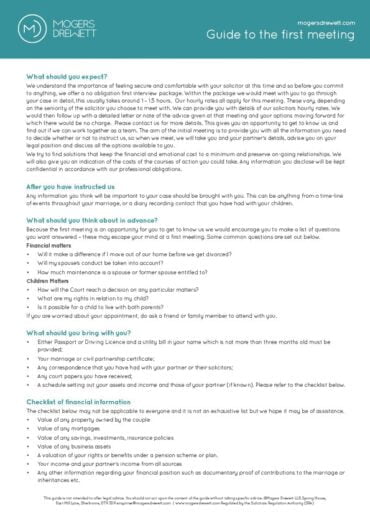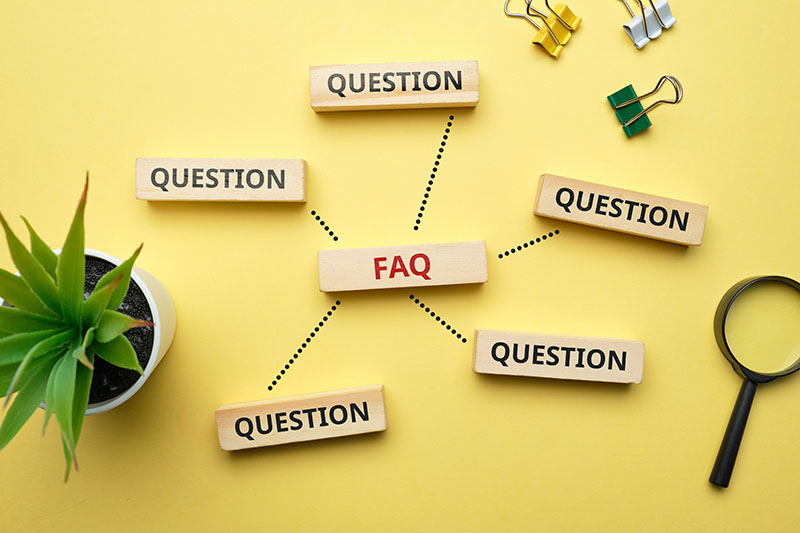Cohabitation agreement solicitors
With a rising number of couples choosing to live together and not get married, cohabitation is the fastest growing family type. But couples choosing to live together are much more vulnerable when a relationship ends, as they don’t have any of the protections offered by law to married couples.
If you live with your partner and your relationship breaks down or one of you dies, you may not have any legal protection, even if you have lived together for several years.
As a result, it is becoming increasingly common for couples to have a cohabitation agreement, sometimes known as a living together agreement, in place.
A cohabitation agreement records what will happen with things like property, a business and the custody of children in the event that you separate from your partner in the future.
Our team of cohabitation agreement lawyers can help you put together an agreement that will help to reduce the likelihood of a costly dispute if you later separate.
Our cohabitation agreement services
Cohabitation and property
If you move into your partner’s house, you may have no right to stay if they die or if they ask you to leave, even if you have contributed to mortgage, maintenance or improvement costs over many years.
A cohabitation agreement provides the framework for couples to record their intentions and respective contributions.
The agreement needs to be precise to ensure that it is enforceable, and include details such as:
- Who owns the property
- How you consider any property or possessions acquired after moving in together to be owned
- Who will household expenses be paid for
Cohabitation and children
If you are unmarried and planning to have children, then a cohabitation agreement can detail how you intend to co-parent should the relationship end.
Parents who are not married or in a civil partnership can claim for financial support for their children following the breakdown of a relationship. Before making an order, there will be consideration of a number of factors including the income and financial resources of the parents together with the financial needs of the child.
The Court can make a number of orders, including:
- Property adjustment orders: A settlement or transfer of property for the benefit of the child while they are dependant
- A lump sum order: Lump sum in favour of the child to meet expenses, such as furnishing a home, nursery costs or a suitable car for the resident parent
- Periodical payments: Regular payments to cover things like the child’s education or vocational training
For a cohabitation agreement to hold weight, it is essential that both parties take legal advice before agreeing the contents.
It is also recommended that you review your agreement regularly and immediately after a change in circumstances, such as having children or receiving a significant inheritance or financial windfall.
Next steps: Get in touch to make a cohabitation agreement
If you and your partner are living together and have no plans to marry, get advice on how a cohabitation agreement can protect you and your loved ones by contacting our family team on: 0800 533 5349 or enquiries@mogersdrewett.com
Meet the team
Frequently asked questions
A cohabitation agreement records what will happen with things like property and custody of children if a relationship comes to an end.
A cohabitation agreement can cover:
- The family home, for example, who will pay for it and maintain it
- Financial support after separation, such as maintenance payments for children and/or the other partner
- Bank accounts and liabilities, and how these should be divided if you separate
While these agreements are not legally binding, they do provide a clear written indication of what should happen if the relationship breaks down and means it’s less likely that a Court application would be necessary.
Any couple living together who are not married or in a civil partnership need to have a cohabitation agreement in place to protect their interests should a relationship end.
It’s best to draft a cohabitation agreement before you move in with your partner. But even if you’ve been living together for many years and are only just considering it, our team of family solicitors can help you create one that satisfies both parties.
You can change a cohabitation at any time with the help of Mogers Drewett family solicitors.
In fact, it’s recommended that you review your cohabitation periodically to make sure it still reflects your wishes. This is especially true if you’ve experienced a significant change of circumstances, such as the birth of a child or after receiving an inheritance.
The terms of your cohabitation agreement give you valuable protection if your separation leads to a dispute over assets, finances or children.
However, if there is a dispute, it is highly recommended that you seek legal advice and representation from local family solicitors in Bath, Wells, Sherborne and Frome to ensure your agreement is enforced.
The term ‘common law marriage’ refers to a marriage-like relationship between a couple who live together without getting married or entering into a civil partnership.
While this concept exists in some countries, it’s not legally recognised in the UK.
Unless you’re married, in a civil partnership or have a cohabitation agreement in place, you’re not legally protected regardless of the length or characteristics of your relationship.
If you have paid towards the upkeep of the house, contributed to the mortgage or assisted with home improvements on the understanding that you would acquire an interest in a property, then it is possible to claim a beneficial interest.
Unlike in marriage or civil partnership, there are no strict rules to determine inheritance under a cohabitation agreement.
If you want your partner to inherit your estate, or you have any other wishes you want to put into effect when you die, you need to make a Will.
Speak with our wealth protection solicitors to make a Will that ensures you can provide financial protection to your loved ones in the most tax-efficient way possible.
A Declaration of Trust is useful for anyone who is buying a property with someone else as joint owners, or anyone who is buying a property with financial help from someone else. Without a Declaration of Trust, each of you is legally entitled to 50% of the equity in the property – regardless of how much each of you have contributed to the initial deposit and mortgage payments. Our wealth planning and protection team can help you put this agreement in place.





